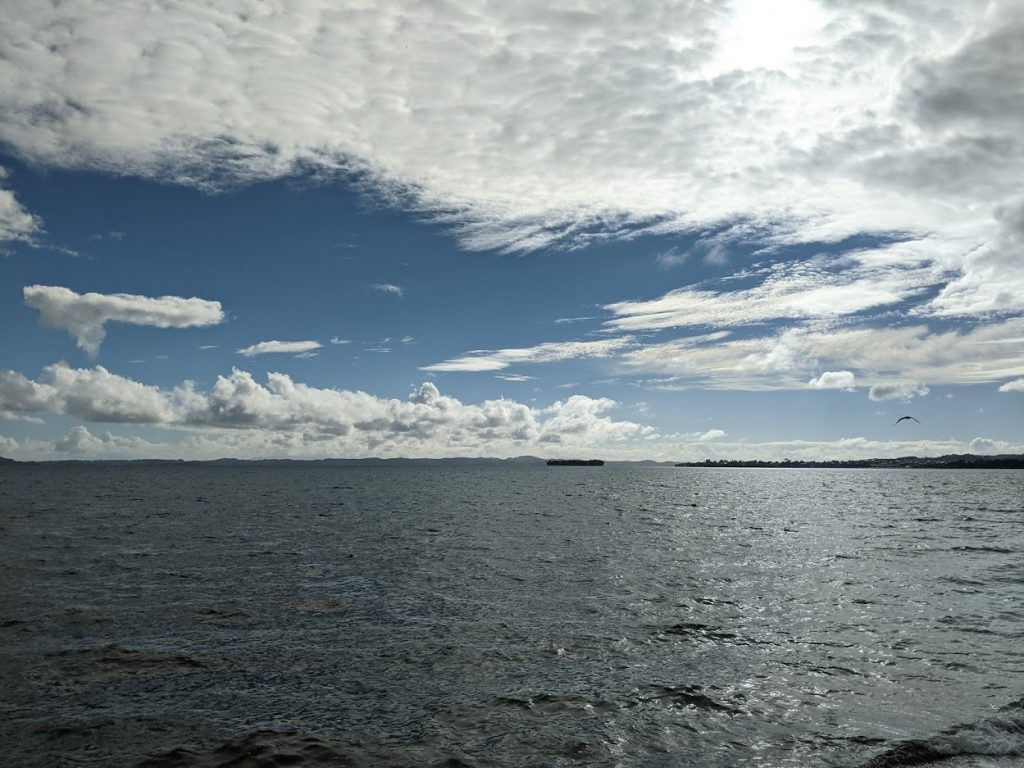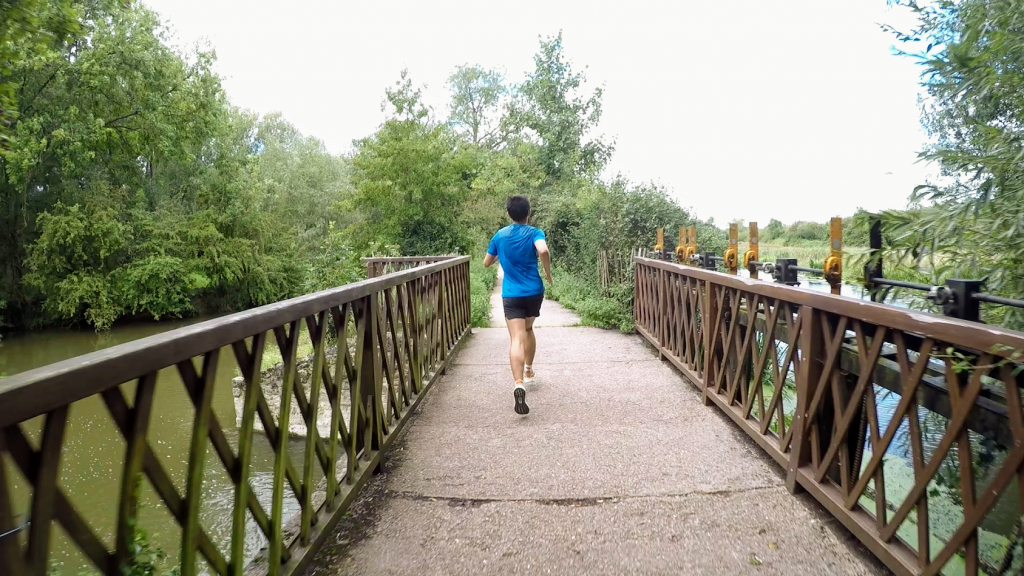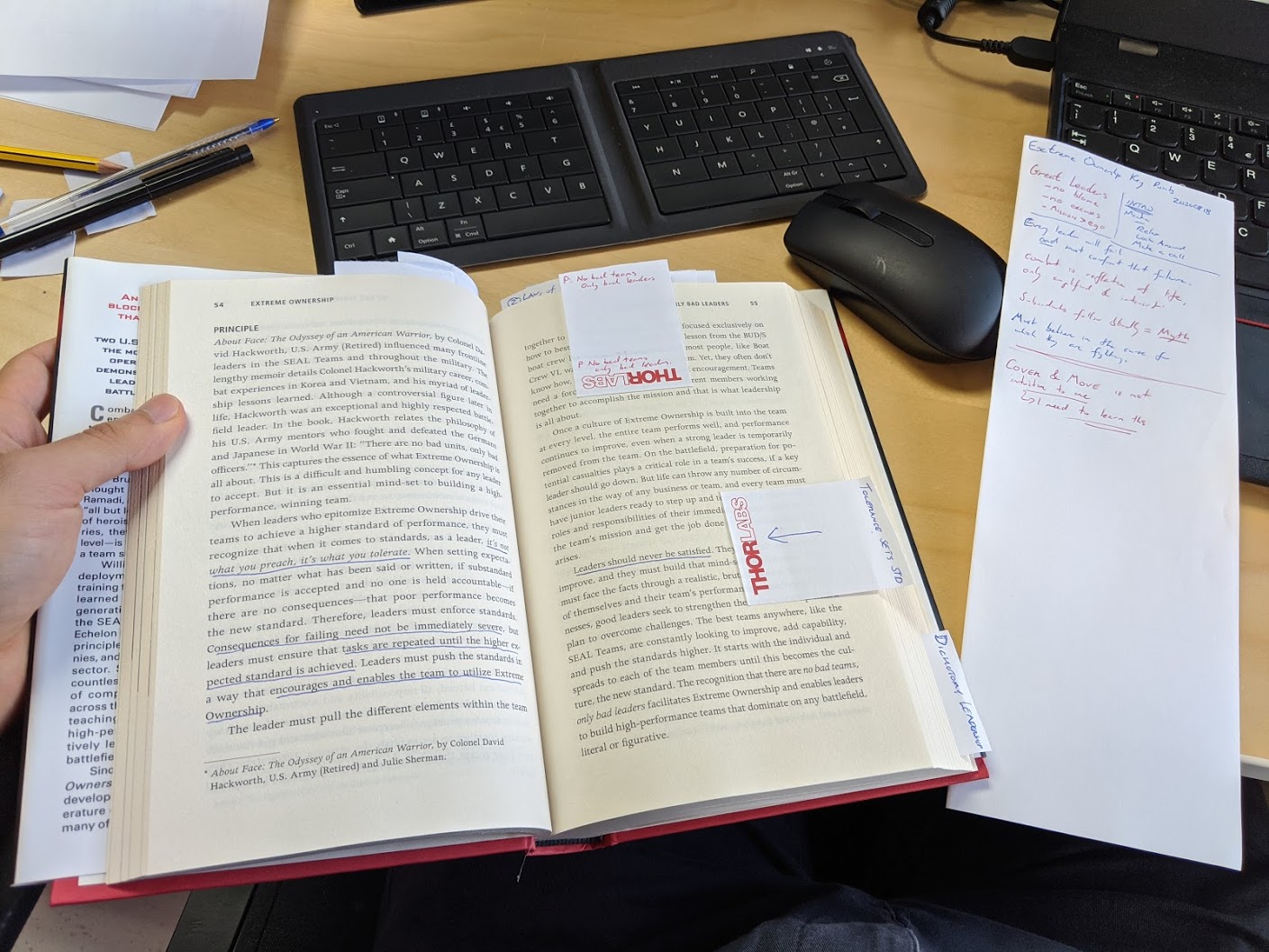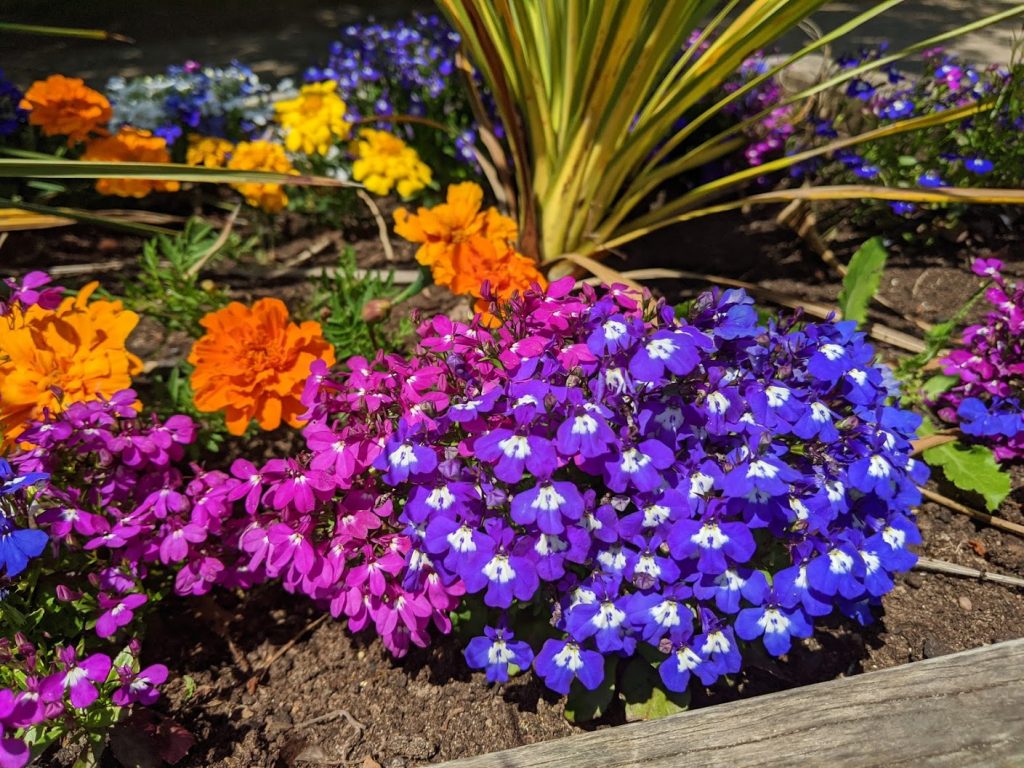Reading Notes
Extreme Ownership by Jocko Willink and Leif Babin uses experiences from their military career (primarily during the Iraq War) to describe principles of leadership. I found the book helpful, particularly as it addressed several weaknesses I see in myself. Both in war and business, the contexts used to describe implementing the principles were higher stakes and more challenging than the situations I find myself in, so I feel the solutions offered would also help solve my problems. Since encountering Jocko’s philosophy via his podcast over a year ago, I feel implementing the ideas in Extreme Ownership have helped me to grow and succeed.
The military content, which makes up a majority of the text, at times glorifies war and some readers will find it distasteful. I would suggest simply reading and considering the core principles, which together make up approximately 30 pages of the 320 page book. The 12 chapters each follow a structure of: 1. military anecdote 2. leadership principle 3. application to business. I found these anecdotes illuminating. In the first chapter, where Jocko describes taking ownership of mistakes leading to a death by friendly fire, he writes “I dreaded opening and answering the inevitable e-mail inquiries about what had transpired. I wished I had died out on the battlefield. I felt that I deserved it.” Even within the intense environment of war, something as common as email can cause “dread” because of the courage required to take ownership of mistakes. The example uses the dire consequences of war to motivate me to take ownership of my own mistakes.
The Principle of Extreme Ownership
Everything that happens to you is your responsibility. Do not make excuses. Do not blame others. Inevitably things will go wrong, and you will fail, but taking ownership can lead to learning, growth, and overcoming that failure. Making excuses, and blaming others, prevents growth and leads to more failure.
I find this a useful mindset. I have much more control over my own actions than others. I can choose what I do, but not what others do. If I externalise control to the world or others around me, and blame the world and others, then I am unable to solve my problems. If I focus on what I can do, on what I can control, then I can make progress.
Quotes I Found Helpful
Note: I hope to add more quotes and expand on these quotes later.
Every leader and every team at some point of time will fail and must confront that failure (p. 8)
This is consolation, failure is to be expected rather than feared. Failure does not mean an individual or team cannot ever succeed. Knowing this, it is possible to move past the embarrassment of one’s failure, and focus on how to improve and overcome.
It’s not what you preach, it’s what you tolerate. (p. 54)
Standards are set and maintained through tolerance. While an individual or team can have lofty aspirations, consistent performance requires intolerance of sub-standard behaviour. In short: Hold the line.
Relax, look around, make a call (p. 161)
Mantras like this help the right decision be made in difficult situations. This needs to be balanced with hesitation, which can be more damaging than haste. Relax: take a deep breath, move past the adrenaline and the pounding heart, clear your thoughts. Look around: detach, take in the bigger picture, understand the context of the situation, what is actually happening here. Make a call: once the situation is understood and a pause can be taken, only then make a decision.






